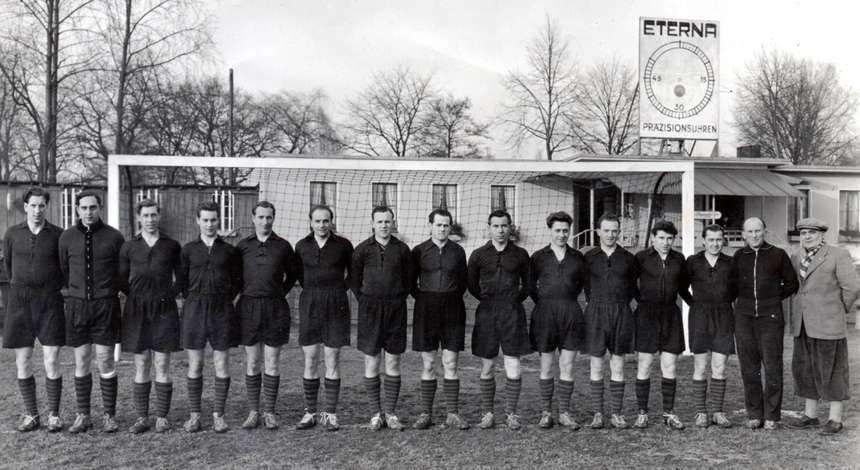
The team from Cologne were unlucky that Heinz Goffart had to go off injured in the first 15 minutes and in the second half he "played" at right back with his knee bandaged. There were no substitutions back then meaning that an injured player had to either leave the pitch or carry on as best they could. With that advantage, the Werkself took the lead before half-time with the former Köln player Walter Nußbaum, who was pulling the strings in midfield, in the team. From a cross by the right winger Waldemar Langwagen, Leverkusen's first international for the DFB B team, centre forward Fritz Tiede made it 1-0 with a wonderful header.
The Bayer 04 fans are joyful when left winger Horst Schultz scores from a tight angle to make it 2-0 two minutes into the second half. However, Herbert Dörner pulls a goal back two minutes later after a solo run to make it 2-1. Under hectic pressure from FC Köln, the Werkself defend with eleven men and then counter-attack with four, five or six players after regaining possession. And if a Köln player shoots then Fredi Mutz, the goalkeeper with a thousand hands, is on hand to make the save.
The giant in the Bayer 04 goal has been in outstanding form for weeks. "Schäfer shoots, Mutz punches, a Stollenwerk rocket, Mutz saves with one hand, Röhrig hits a low shot, Mutz saves with his foot, Müller with a follow-up shot, Mutz holds on!" (Kölner Stadt-Anzeiger 22.11.1954). And all that in just 15 seconds. But with ten men, the Red and Whites are unable to overcome the outstanding Bayer team. Leo Bering scores to make it 3-1 after clinically exploiting a poor punch from the Köln keeper Klaus Hartenstein. And suddenly, unbelievable today, the whole of the Köln support gets behind Leverkusen. Every Werkself attack is supported loudly by the whole stadium and the goal sealing the win, scored by Waldemar Langwagen on 69 minutes, is celebrated frenetically. Bayer 04 Leverkusen made a lasting impression and at the end of the season third place is just not enough to qualify for the German championship finals but it is the first time finishing ahead of FC Köln in the final table.
Related News
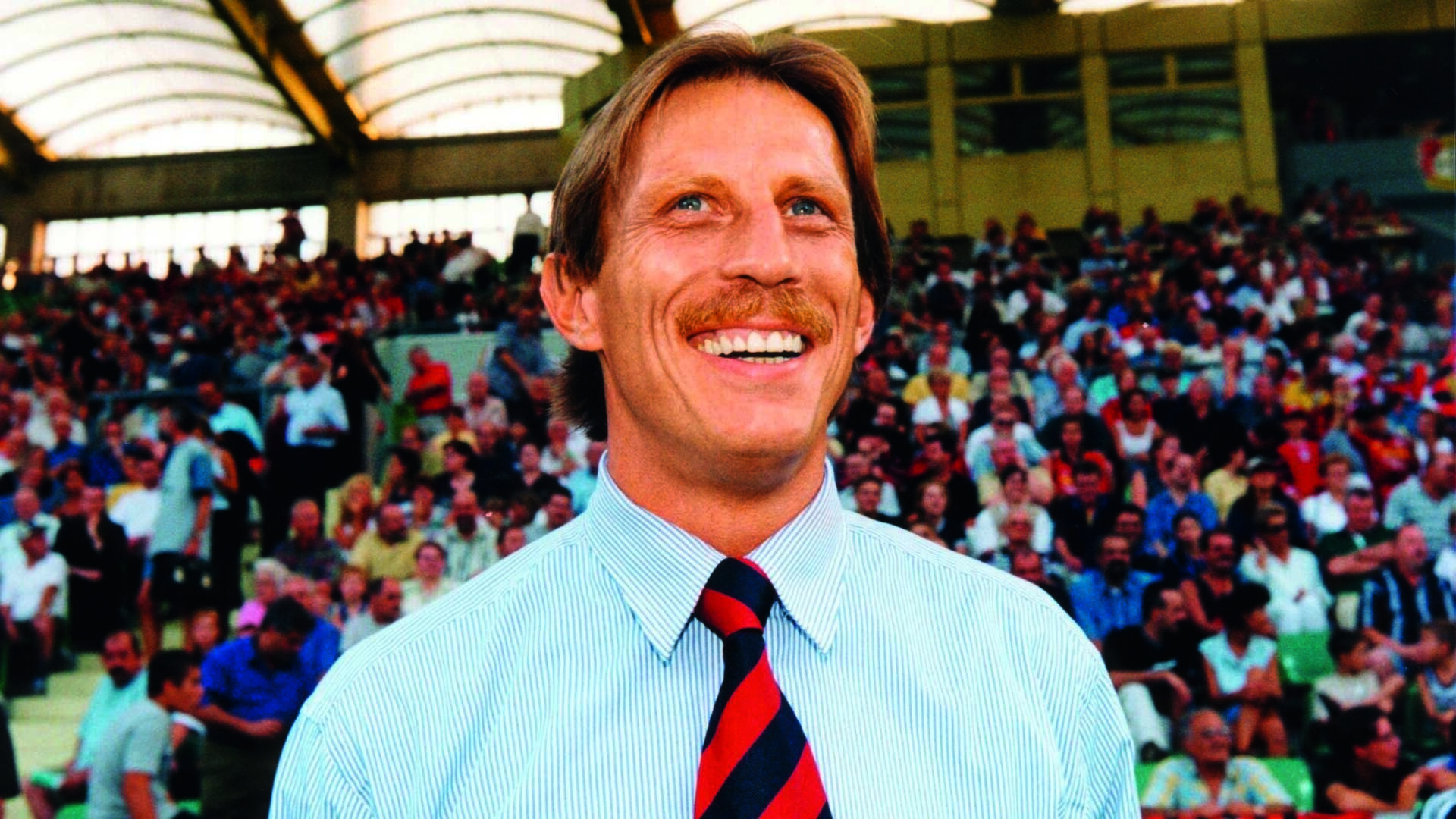
Legend: Christoph Daum - The man who taught us to want
Christoph Daum was born on 24 October 1953 in Zwickau. As a child, he moved to West Germany with his mother and grew up in Duisburg. He developed a great enthusiasm for football at an early age, even though it soon became clear that his future lay less on the pitch than on the sidelines. Even at a young age, his passion for analysing, explaining and improving things became apparent.
Show more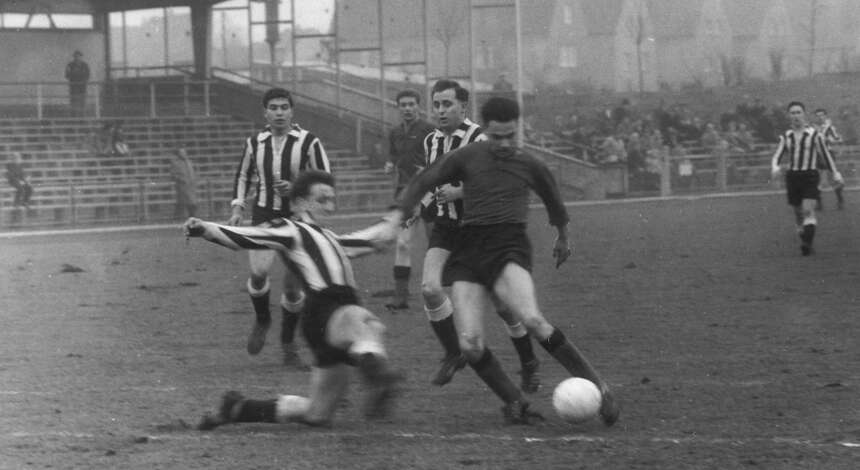
From the archives: 65 years ago - Another victory at last
When the Bayer 04 players celebrated Christmas in 1960, they spent the winter in second place in the Oberliga West 2 on 20 points - but already five points behind leaders Schwarz-Weiß Essen. However, coach Erich Garske's team are struggling to get back on track in the new year. A goalless draw against Bonner FV at home at the Ulrich Haberland Stadium was followed by a 2-1 away defeat in Erkenschwick. The following home game also yielded just one point. As a result, the team's promotion ambitions dwindled to a minimum, as the gap to the coveted spot has now grown to a challenging ten points.
Show more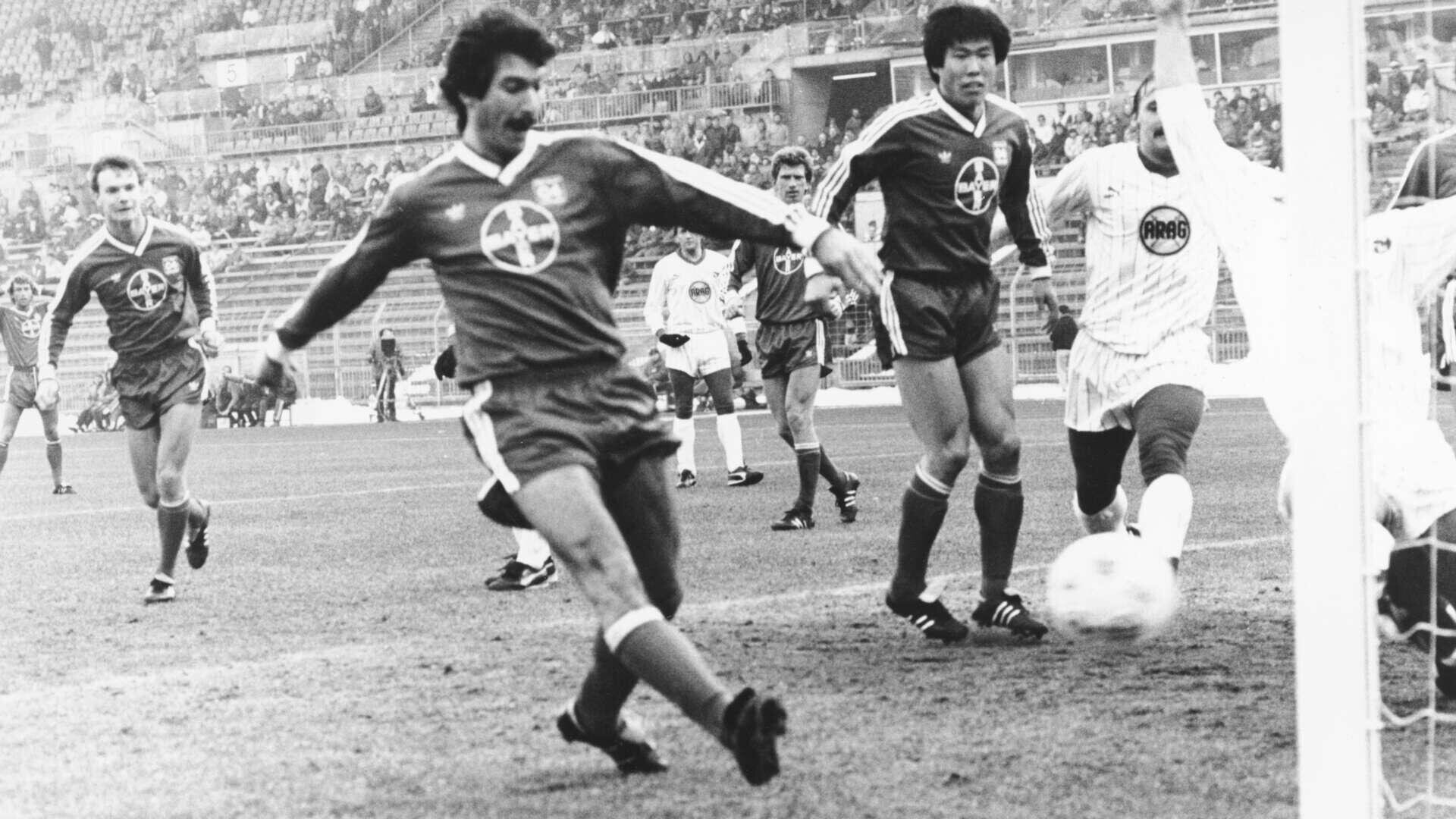
Goals of the month: From Waas to Tapsoba
In this video you can see impressive and important goals in Bayer 04 history from the month of February. It's not always about the beauty of the goals, but also a reminder of special games and players.
Show more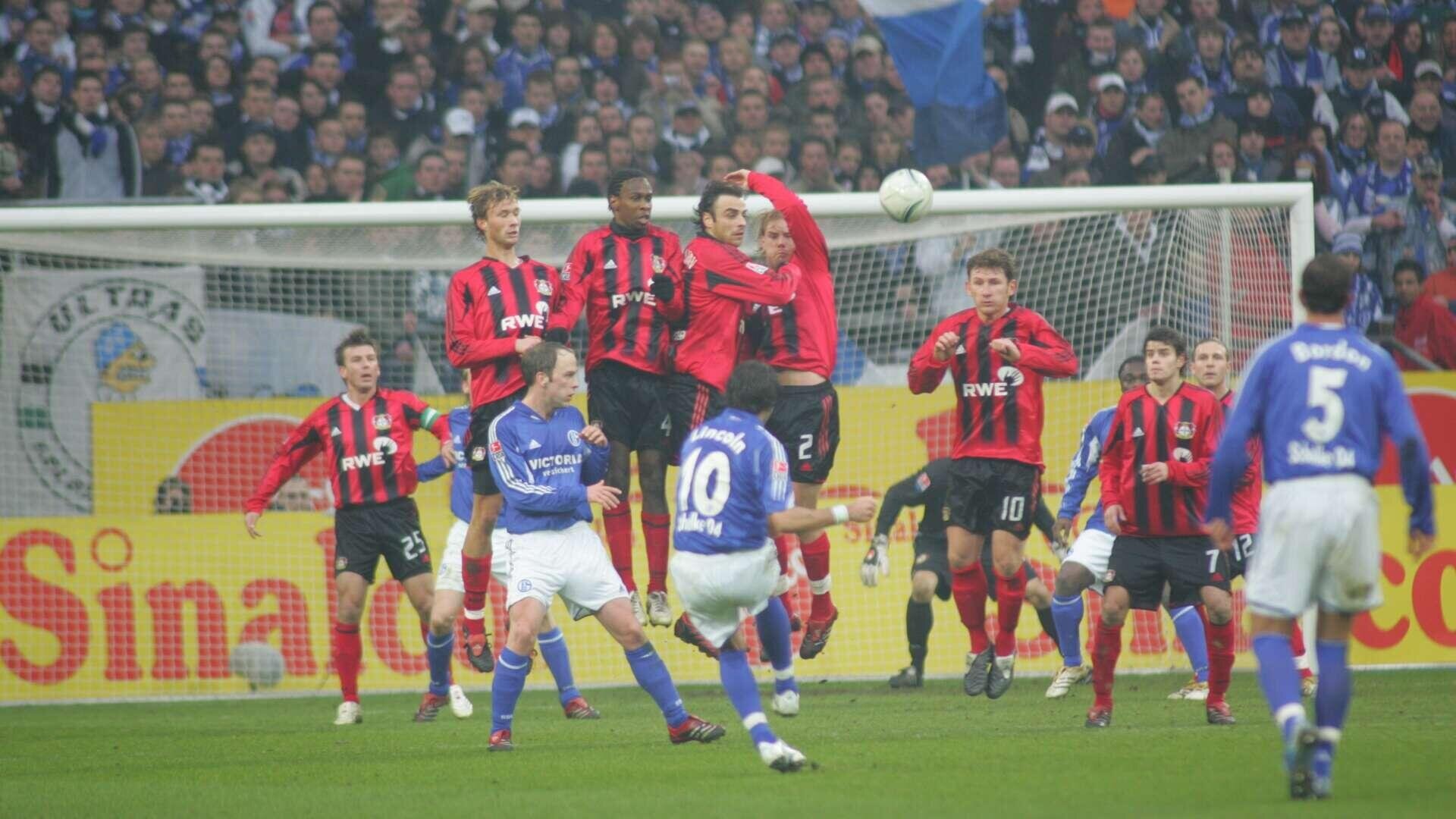
Match of the month: 20 years ago - A game of goals galore
It is 11 February 2006 and Schalke 04 and the Werkself kick off at 3.30 p.m. in a match that ends up being historic - at least from a Bayer 04 perspective.
Show more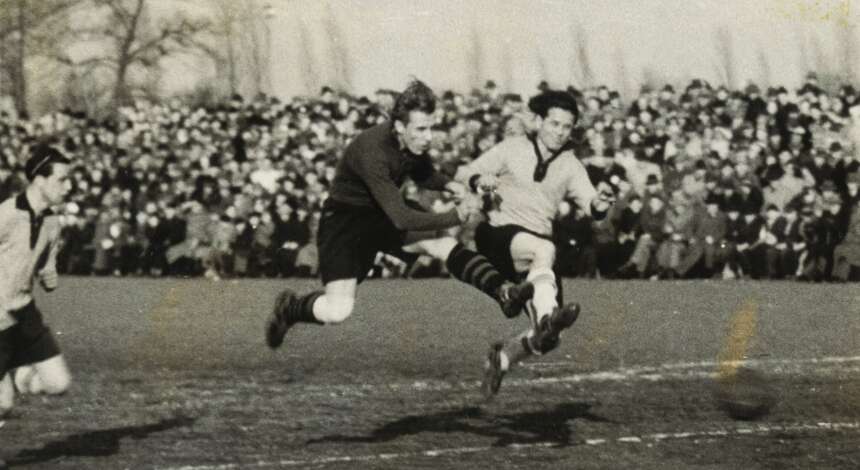
History: 75 years ago - The 1950/51 season (February)
As league leaders, the Werkself welcomed the relegation-threatened team from Rhenania Würselen. On 4 February 1951, 5,000 spectators line the touchlines despite the Sunday carnival parades. And they see a home team that is superior on the pitch. Without Theo Kirchberg, who was ill, and Emil Becks, who was suspended, the hosts attacked the opposing goal from the start. Battling against a strong wind in the first half, Bayer 04 created chance after chance, but were repeatedly thwarted by the Würselen goalkeeper. With the score at 0-0 at half-time, Karl Heinz Spikofski tried his luck on 55 minutes and hammered the ball into the opposition net from 20 metres out. Rhenania can no longer counterattack. The siege of the Würselen penalty area continued right to the end, but the game ended in a narrow 1-0 win.
Show more